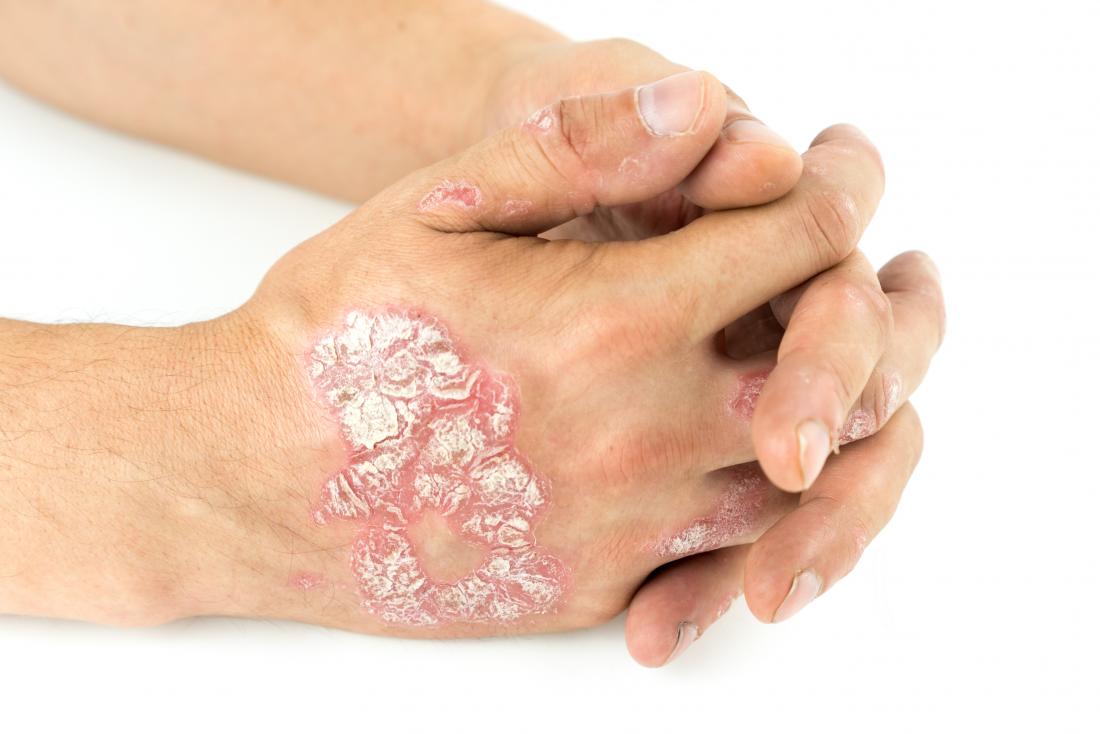Psoriasis is a chronic skin condition affecting millions of people worldwide. Among its various forms, chronic plaque psoriasis is the most common type. In this blog post, we will delve into what chronic plaque psoriasis is, explore its symptoms, causes, and types, and discuss effective treatment options, including plaque psoriasis injections.
Itchy, scaly skin patches are typical symptoms of plaque psoriasis, and they frequently develop on the lower back, elbows, and knees. There’s no cure at this time, but it can be treated with time.
So, let’s continue to learn more:
What is Psoriasis?
Psoriasis is a skin disorder characterized by the rapid growth of skin cells, leading to the formation of thick, red, and scaly patches. Chronic plaque psoriasis is a subtype that manifests as raised, inflamed lesions covered with silvery-white scales. Understanding this condition is crucial for individuals seeking effective management and relief.
An immune system deficiency causes the inflammatory condition known as chronic plaque psoriasis. While dry, flaky skin patches are the most noticeable symptom of plaque psoriasis; there are a number of other issues that this illness can lead to that are harder to notice.
What is Chronic Plaque Psoriasis?
Psoriasis is a chronic, inflammatory autoimmune disease. The most prevalent type of psoriasis is chronic plaque psoriasis, while there are several variations that can manifest with a variety of symptoms and intensities. Eighty to ninety percent of those who have plaque psoriasis are affected.
The kinds of skin lesions that might develop and the parts of the body they affect are characteristics of different types of psoriasis.
Every type of psoriasis is long-lasting. Psoriasis is not currently treatable. However, some cases may improve or go into remission with treatment.
How do you initially diagnose chronic plaque psoriasis?
If you have chronic plaque psoriasis, your primary care physician may be the first to diagnose you; however, rheumatologists and dermatologists may also treat other types of psoriasis.
A visual examination is the most common method used by your healthcare provider to identify persistent plaque psoriasis. A defining characteristic of plaque psoriasis is the presence of dry or scaly patches.
To formally validate your diagnosis or rule out any other skin conditions that could be the cause of your itchy or flaky skin, more testing might be performed. These conditions include:
- Contact dermatitis
- Lichen Planus
- Atopic dermatitis
- Mycosis fungoides
- Secondary syphilis
- Pityriasis rosea
- Tinea corporis
A skin scraping or skin biopsy is the most common test used to assist in distinguishing between these disorders. In this procedure, a sample of your skin is examined under a microscope to help discover any further possible reasons for irritation or infection.
Psoriasis Symptoms:
The appearance of scaly skin lesions with distinct borders is the main sign of persistent plaque psoriasis. These lesions, which begin as tiny papules and gradually enlarge into bigger plaques, frequently manifest symmetrically on both sides of the body.
Some other plaque psoriasis symptoms are listed below:
- Itching and burning sensations
- Red, raised patches of skin covered with silvery scales
- Dry, cracked skin that may bleed
- Thickened, pitted, or ridged nails
- Swollen and stiff joints (in some cases)
Is Plaque Psoriasis an Autoimmune Disease?
It is true that autoimmune diseases include plaque psoriasis. When the immune system unintentionally targets healthy skin cells, an excess of skin cells is produced, which results in psoriasis symptoms. For the purpose of creating specialized remedies, it is important to comprehend the autoimmune character of the illness.
Psoriasis Causes:
The exact cause of psoriasis is not fully understood, but a combination of genetic and environmental factors is believed to contribute. Triggers may include:
- Genetics: A family history of psoriasis increases the risk.
- Immune System: Dysfunction in the immune system can lead to an inflammatory response.
- Environmental Triggers: Stress, infections, and certain medications may exacerbate psoriasis symptoms.
Psoriasis Treatment:
A combination of topical treatments, oral drugs, lifestyle modifications, and, in certain situations, more sophisticated therapies such as plaque psoriasis injections are used to control persistent plaque psoriasis effectively. Important forms of treatment consist of:
- Topical treatments: Topical application of corticosteroids, vitamin D analogs, and retinoids.
- Oral Drugs: Methotrexate, cyclosporine, acitretin, and other systemic drugs.
- Biologics: Targeted treatments such as injections for plaque psoriasis, etanercept, and ustekinumab.
- Light therapy: Modest amounts of ultraviolet (UV) light exposure can help reduce symptoms.
Plaque Psoriasis Injections:
Plaque psoriasis injections, a form of biologic therapy, target specific components of the immune system involved in the development of psoriasis. They are administered either under the skin or into a vein, providing a targeted and effective treatment option for moderate to severe plaque psoriasis.
Living with chronic plaque psoriasis can be challenging, but understanding its symptoms, causes, types, and treatment options empowers individuals to make informed decisions about their health.
Whether opting for topical treatments, oral medications, or advanced therapies like plaque psoriasis injections, collaborating with a healthcare professional is crucial to developing a personalized treatment plan for optimal outcomes.
Biological Infusion Therapy Treatment for Plaque Psoriasis
Unlike most conventional psoriasis treatments that target the immune system as a whole, the most recent infusion medications, or biologics, are more targeted, targeting only the compromised part of the immune system. This leads to a greater degree of treatment precision and fewer unidentified repercussions.
Intravenous or intramuscular psoriasis biologics function by blocking immune system T-cells or other proteins that trigger the onset of psoriasis.
Biologics block specific cells or proteins implicated in psoriasis. They keep them from reaching their maximum potential. That relieves inflammation and other issues while also weakening your body’s defenses.
If your immune system is weak, you may be more vulnerable to infections or illnesses. Additionally, it may trigger a relapse of a condition your body is managing, such as tuberculosis (TB).
While taking the drug, it’s important to keep an eye out for infection signs, including fever, chills, and fatigue or aches. You should get in touch with your doctor if you encounter any of those symptoms.
Following are the biologics that are used for treating plaque psoriasis:
- Enbrel
- Cimzia
- Humira
- Remicade
- Simponi Aria and Simponi
- Consentyx, Taltz, Siliq
- Orencia
- Illumys
- Remfya
- Skyrizi
These biologics are administered into the patient’s body through injections for plaque psoriasis. Consult your doctor to find out about any possible interactions before starting therapy with any of the aforementioned drugs, especially if you are already on any of them or other biologics.
Reach Out to Fuse Infusion for Plaque Psoriasis Treatment
We at Fuse Infusion provide the best treatment services if your doctor has prescribed biologic infusion therapy for your plaque psoriasis. Plaque psoriasis injections are how we treat the chronic condition and assist our patients in getting better.
Throughout biological infusion therapy, each Fuse Infusion patient receives individualized attention and care from our certified medical professionals, offering comprehensive medical management.
Every patient receives customized care from beginning to end. Medical experts who are available on call are available when needed.
Contact us today to discuss your disease with us!

